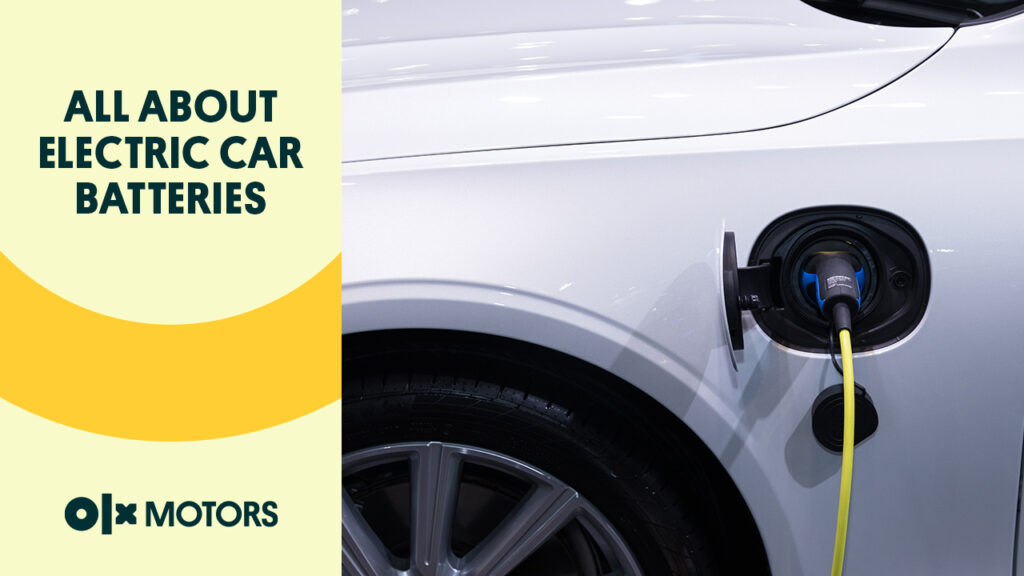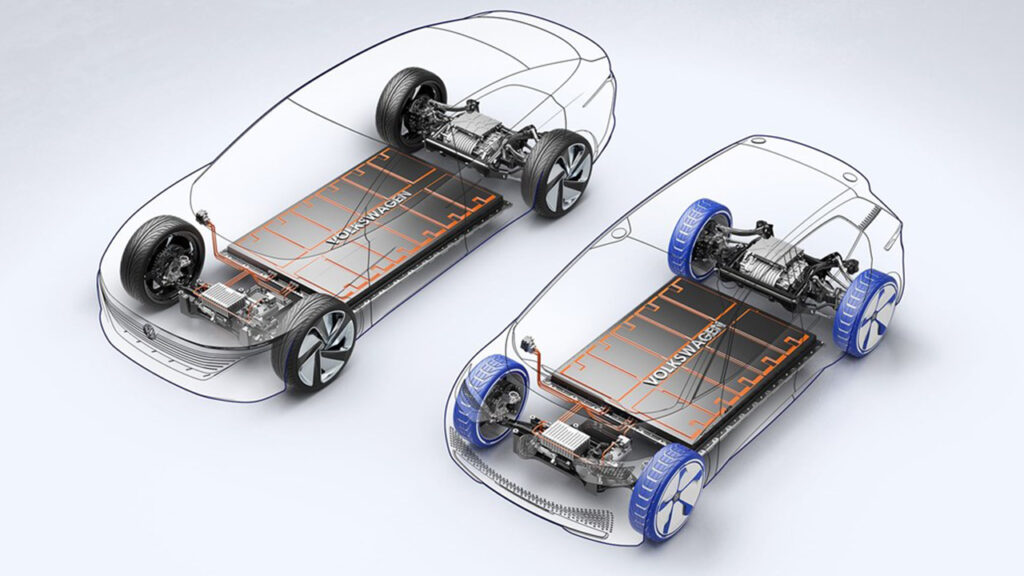
Electric vehicles are the future of transportation. This means we’ll all have to get used to battery technology. It can be intimidating if you don’t know your kilowatts from your kilowatt-hours at first, but it doesn’t take long to master the jargon.
In this helpful guide, we’ll clarify how electric car batteries work, what to look for when purchasing an EV (electric vehicle), and how to distinguish cutting-edge battery technology.
What types of batteries are used in electric vehicles?
The majority of new electric vehicles on the market use battery technology that is fundamentally the same: hundreds of individual cells packed into modules of pockets to form one large battery. The largest ones are massive, measuring a few metres long and weighing several hundred kilogrammes; as a result, most are placed under the floor inside a car’s chassis in what’s known as a skateboard configuration.
You may also like:

There are two types of electric car batteries that are commonly used today:
1. Lithium-ion rechargeable battery (most EV manufacturers use it e.g., Tesla, Jaguar etc.)
2. Nickel-metal hydride (Found in hybrids e.g., Toyota)
The fundamental chemistry of EV batteries isn’t dissimilar to that of your phone’s batteries. For quick charge cycling, most modern smartphones use lithium-ion batteries, which are similar to those found in an Apple iPhone or Samsung Galaxy mobile, but on a much larger scale.
The requirements are complex: they must be able to store a large amount of energy while also being able to recharge quickly and retain their energy density over many thousands of charging cycles, all while pummelling by roads, potholes, and whatever else the great Pakistani roads throw at them.
Battery Capacity of EVs
EV batteries are typically quite large in order to provide the energy required to propel a car weighing two tonnes or more. Their energy capacity is typically measured in kilowatt-hours (kWh), which denotes the battery’s energy storage over a specific time period. Consider this to be the size of a fuel tank in a combustion-engine vehicle.
So, a 100-kWh battery in an EV can deliver a maximum of 100 kilowatts of energy for one hour. Typical day-to-day driving consumes far less energy, so the battery will last for several hours before needing to be recharged.
How long do batteries in electric cars last?
If you’re thinking about buying an electric vehicle, make sure it has a sufficient battery capacity to meet your needs. A smaller battery capacity will suffice if the majority of your driving is short distance.
Similarly, the more range you require, the larger the battery pack you should specify or accept that you’ll have to charge it more frequently.
The smallest batteries available today are in the 30-something kWh range, with the largest ranging up to 100 kWh. The larger batteries are significantly more expensive. We recommend that you should not be put off by the smaller capacities as long as you have home charging and a short commute.
Longevity, reliability and warranties
How long an EV battery lasts isn’t just a matter of daily range. Some buyers are concerned about the battery’s lifespan, but evidence suggests that your car will not suffer a catastrophic battery death like your ageing smartphone.
A typical EV battery has so many cells that it retains capacity even after hundreds of thousands of miles. While they won’t perform as well as when brand new, they will keep holding charge for many, many years to come. The internet is full of high-mileage electric and hybrid cars that are still running well into their dotage. The expected battery life of an electric car is at least a decade, and our advice is that your car will break down before your battery fails.
Why are electric car batteries so expensive?
EV batteries contain a substantial amount of expensive and rare metals, which makes them costlier. This is why electric cars are so expensive when compared to their more traditional petrol or diesel counterparts. The heavily mined lithium is not cheap.
Fortunately, the cost of batteries is gradually decreasing, even if we’re still a long way from EVs being as cheap as gasoline equivalents.
Are electric car batteries safe?
Electric car batteries are rigorously tested, and manufacturers install numerous safety systems to ensure their safety. There’s nothing to worry about if you’ve spent the last few years driving around with highly flammable petrol or diesel stored in your fuel tank.
Yes, there are very high voltages involved, but passengers will never be subjected to dangerous shocks. The batteries are typically protected from shocks by being packaged low down in the middle of the car to prevent them from being damaged in a crash, which could cause a fire.








Leave a Reply